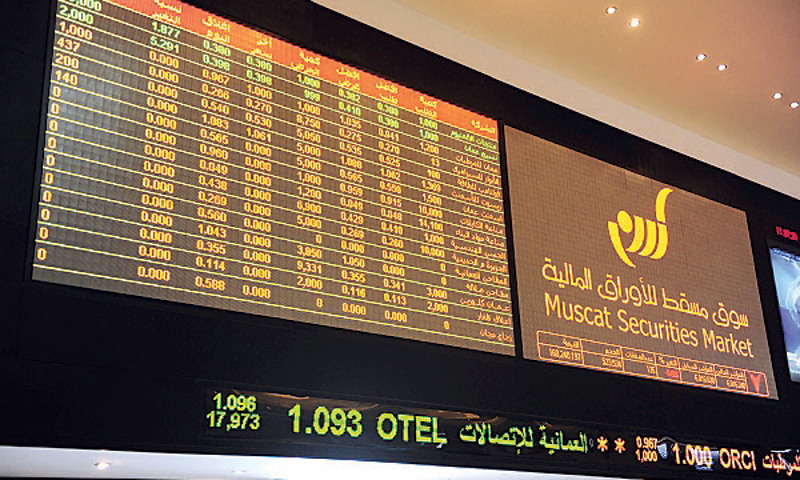

MIXED BAG: Investors are pinning their hopes on a sustained market recovery this year following what has been a challenging 2020 for the MSM
Boding well for an uptick in the performance of the Muscat Securities Market (MSM) — soon to be renamed Muscat Bourse Company (SAOG) — are a number of initiatives and developments that promise to provide new opportunities for investment and market growth during 2021.
On the cards are several Initial Public Offerings (IPOs), potentially new products in the form of Exchange Traded Funds, and new listings of Real Estate Investment Trusts (REITs).
These anticipated launches, coupled with added momentum in the implementation of the Mandatory Health Insurance Scheme (Dhamani), among other initiatives, promise to buoy the Omani bourse during the current year. Investors are pinning their hopes on a sustained market recovery this year following what has been a challenging 2020 for the MSM.
The MSM30 Index closed 2020 down by 8.10 per cent year-on-year (YoY) at 3658.77, while the MSM Total Return Index was down by 1.6 per cent to close the year at 4175.48, mirroring sharp declines in most stock markets across the world.
According to leading investment services firm Ubhar Capital (U-Capital), around 3 or 4 IPOs are anticipated for launch in 2021, as opposed to the solitary public offering recorded last year.
“The IPO market will remain slightly better than in 2020. We expect 3-4 IPOs in the field of oil/gas, insurance, utilities and more REITs to materialise in 2021’’, said U-Capital in its assessment of the market outlook for this year.
In contrast, only one IPO materialised last year. Oman’s first REIT i.e. Aman REIT offered 50 per cent of its RO 20 million fund in the first public offering by a property fund in the Sultanate. Aman REIT was listed on March 15, 2020.
Next week, the IPO of Oman REIT Fund, billed as the biggest-ever listing of a property trust in the Sultanate, formally opens on January 17.
Oman REIT Fund is the first Omani real estate investment trust with a diversified assets portfolio, which is offering 40 per cent of its total issued capital of RO 65 million for public subscription.
The REIT, managed by Shumookh Fund Management LLC, is offering 261.903 million units at an issue price of 102 baisa per unit comprising 100 baisa as unit value plus 2 baisa towards issue expenses.
For the insurance sector, there is positive news in store in the form of Mandatory Health Insurance — dubbed ‘Dhamani’ — which will be rolled out in earnest this year.
“Mandatory health insurance for residents and nationals along with for tourists will be implemented in multiple phases which will be beneficial to the insurance sector of Oman’’, said U-Capital in its report.
Other developments anticipated during the year promise to produce a mixed bag of results. The roll-out of Vodafone, for instance, as the third telecom operator in the Sultanate has incumbent players, as well as customers, wondering what the launch of the global brand means for them.
U-Capital commented: “We expect Vodafone to start operating in mid-2021, which will result in more competition locally. However, we do not expect an immediate impact on the existing operators in 2021, but will see erosion of their market share over the next 2-3 years.”
Local banks are also expected to continue to come under pressure from the challenging fiscal environment, as the investment services firm explained: “Low US Fed policy rates are expected to provide respite to borrowers, but will at the same time pressurise interest yields of banks.
The highly competitive environment continues to pressurise other operating income of banks, which constitutes typically 25-35 per cent of total operating income of banks.
On the other hand, the current capital adequacy ratios for most banks are well above the minimum regulatory requirements through continuous capital raising activities in prior years. However, some banks might raise capital in 2021 in order to further strengthen their balance sheets.”
The outlook for the leasing sector is anticipated to be equally challenging, primarily from the ongoing liquidity crunch, delayed payments and increasing defaults. Leasing firms are also expected to face tough competition from conventional and Islamic lender.
Oman Observer is now on the WhatsApp channel. Click here



